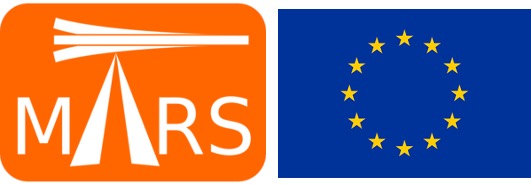 Versatile Mass And Rheological Sensing platform
Versatile Mass And Rheological Sensing platform
| Founding Body: | European Union Horizon 2020 – Marie Skłodowska-Curie |
|---|---|
| Total grant: | € 171.5k |
| Principal Investigator: | João Mouro |
| Other participants: | Bruno Tiribilli |
| Project duration: | 2020-2022 |
| Website: |
Abstract
Fluids play a key role in many sensing applications, being either the substance to be tested (e.g. blood or saliva) or the support environment used to keep the substance of interest in its physiological state (e. g. proteins, DNA or analytes in solution). Therefore, measuring the mass of analytes with extremely high – potentially single molecule – accuracy, or understanding the rheology of simple and complex fluids play a critical role in a wide variety of applications, from the food and process industry, to environmental monitoring, to healthcare, to microfluidics. MEMS-based sensors are often based on the interaction between the sensing probe and its surrounding medium. Commonly the mechanical device response is affected by changes in environmental properties, such as temperature, pressure, flow, density, viscosity or the presence of some analytes of interest.
The MARS project aims to develop a platform for mass sensing and non-Newtonian fluid characterisation at the microscale, while achieving a deeper and more fundamental understanding of the complete integrated system. This will allow measuring mass and rheological properties of Newtonian/non-Newtonian fluids in real-time, with unprecedented resolution and reliability, by using some unique degrees of flexibility in the dynamical response of a self-excited mechanical cantilever. This research addresses several of the main drawbacks of current techniques to measure mass or to characterise viscoelastic fluids and allows to test these properties at temporal and length scales that are currently not available via commercial technologies.
Publications
Mouro, J., Paoletti, P., Sartore, M., Tiribilli, B., “Low limit of detection gas density sensing with a digitally PI-controlled microcantilever”, Under Review in Measurement Science and Technology, (2023).
Gelli, M., Mouro, J., Paoletti, P., Tiribilli, B., Basso M., “Bifurcation analysis and complex phenomena in self-excited microcantilevers”, Under Review in to Communications in Nonlinear Science and Numerical Simulation, (2023).
Mouro, J., Paoletti, P., Sartore, M., Tiribilli, B., “Dynamical response and noise limit of a parametrically excited microcantilever sensor in a Phase-Locked Loop”, Scientific Reports, 2023.
Mouro, J., Paoletti, P., Sartore, M., Vassalli, M., Tiribilli, B., “Photothermal self-excitation of a phase-controlled microcantilever for viscosity or viscoelasticity sensing”, Sensors, 22, 8421 (2022)
Mouro, R Pinto, P Paoletti, B Tiribilli, “Microcantilever: Dynamical response for mass sensing and fluid characterization”, Sensors, 2021
Measuring Viscosity Using the Hysteresis of the Non-Linear Response of a Self-Excited Cantilever,
Mouro, P Paoletti, M Basso, B Tiribilli – Sensors, 2021
A versatile mass-sensing platform with tunable nonlinear self-excited microcantilevers,
. Mouro, B. Tiribilli and P. Paoletti, IEEE Transactions on Nanotech., 17(4), 751-762, 2018.
Nonlinear behaviour of self-excited microcantilevers in viscous fluids,
J. Mouro, B. Tiribilli and P. Paoletti, Journ. Micromech. and Microeng., 27(9), 095008, 2017.
Measuring viscosity with nonlinear self-excited microcantilevers,
J. Mouro, B. Tiribilli and P. Paoletti, Appl. Phys. Lett, 111(14), 144101, 2017.
Participation in conferences
Mouro, J., Paoletti, P., Sartore, M., Tiribilli, B., “High frequency microcantilever-based sensing of viscoelastic
fluids”, Nanoengineering for Mechanobiology 2022, Camogli, 27th-31st March 2022 (Poster Presentation).
Mouro, J., Paoletti, P., Sartore, M., Tiribilli, B., “Dynamics of a closed-loop digitally controlled microcantilever
with parametric amplification/suppression for enhanced sensing”, 48th
Technical report
Mouro, J., Tiribilli, B. “LEGO -MARS Model” Realization of a toy model with Lego Mindstorm EV3 showcasing the basic physical principle of cantilever mass sensing.


